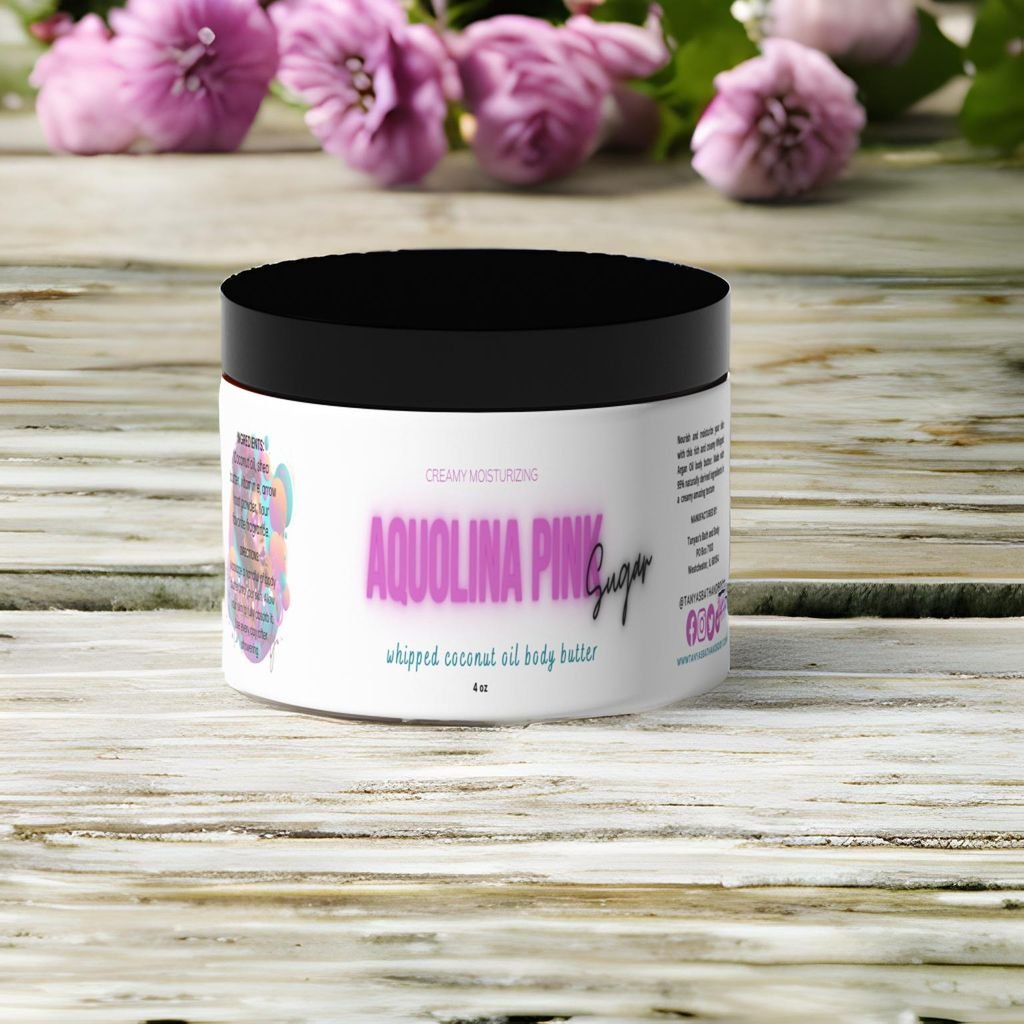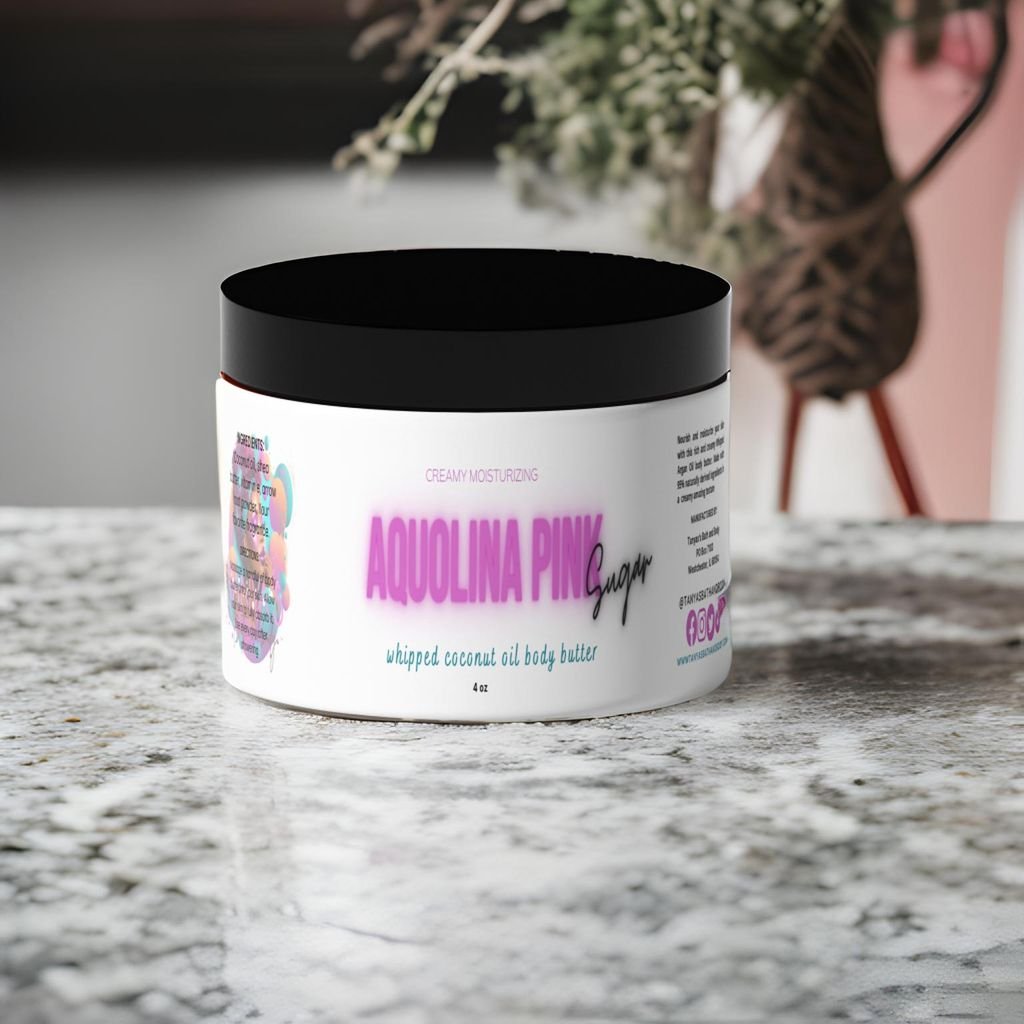
Are you tired of searching for the perfect ingredient to liven up your skincare routine? Dry, irritated, or just plain lackluster skin can be a real downer. But what if there was a natural solution sitting right in your kitchen cabinet? That’s right, we’re talking about coconut oil—a tropical treasure that might be the answer to your skin’s SOS call.
Here’s a sweet fact: coconut oil isn’t just for cooking; it’s packed with properties that pamper and protect your skin like no other. In this blog post, we’ll dive into the amazing benefits coconut oil offers for maintaining healthy and radiant skin.
From hydration hero to anti-aging ally, you’ll discover how to make this versatile oil work wonders for you. Get ready to glow—coconut style!
Key Takeaways
- Coconut oil is a natural moisturizer for the skin, rich in medium – chain fatty acids like lauric acid, capric acid, and caprylic acid which are known for their hydrating and antimicrobial properties.
- It contains vitamin E and proteins that help protect against aging by promoting collagen production and cell health, keeping skin looking youthful.
- The oil can accelerate wound healing with its anti – inflammatory properties and creates a protective barrier to shield the skin from pollutants.
- When used in skincare routines, coconut oil provides benefits such as reducing wrinkles and fine lines, soothing chapped lips, and removing tough makeup gently.
- For best results in skincare applications, it’s advisable to use cold – pressed, organic or extra virgin coconut oil due to their higher nutrient content.
Understanding Coconut Oil

Coconut oil is comprised of medium-chain fatty acids that have moisturizing and healing properties. It is sourced from the kernel or meat of mature coconuts and can be extracted through various methods such as cold-pressing or refining.
Composition of Coconut Oil
Coconut oil is made up of unique fatty acids that are beneficial for skin health. These include lauric acid, capric acid, and caprylic acid, which are known for their antimicrobial properties.
This rich mix of fats makes the oil an ideal protective barrier on the skin while also nourishing it deeply.
This versatile oil also contains vitamin E and essential proteins. Vitamin E contributes to its antioxidant qualities, helping protect against aging by neutralizing harmful free radicals in the body.
Proteins aid in tissue repair and cell health, keeping your skin looking youthful and radiant.
How Coconut Oil Is Sourced
Coconut oil begins its journey from tall, green coconut palms that sway in tropical climates. Farmers harvest mature coconuts with husks that hide the rich, oily meat inside. After collection, workers crack open these tough shells to reach the white flesh known as copra.
This copra is then dried under the sun or using special kilns to remove any moisture that can spoil the oil.
Once dried sufficiently, producers press this desiccated coconut flesh mechanically to extract pure oil. The process uses a cold-press technique to retain all the natural benefits for skin hydration and nourishment without chemicals or high heat.
This cold-pressed virgin coconut oil maintains its full aroma and taste while keeping intact its moisturizing properties and rich content of fatty acids beneficial for your skin’s health.
The Multifaceted Benefits of Coconut Oil for Skin

Coconut oil offers a multitude of benefits for the skin, including hydration for dry and cracked skin, anti-inflammatory properties, accelerated wound healing, antimicrobial benefits for acne-prone skin, and anti-aging effects for youthful skin.
With its versatile uses, coconut oil is a must-have in any skincare routine.
Hydrating Dry and Cracked Skin
For those dealing with rough, parched skin, applying coconut oil can be a game changer. Its rich hydration properties penetrate deep to soften and replenish moisture, creating a soothing effect on areas prone to dryness and cracking.
Picture your skin as a thirsty plant; just as water revitalizes it, coconut oil revives your skin cells by infusing them with nourishing fatty acids.
Regular use of this wonder oil forms a protective barrier that not only locks in essential hydration but also shields the skin from harmful pollutants. Your elbows, knees, and heels especially benefit from its emollient features – areas that often suffer most from dehydration.
With every application, expect smoother and more supple skin that feels refreshed and resilient against daily stressors.
Anti-inflammatory Properties
Coconut oil offers anti-inflammatory properties that can soothe and calm irritated skin. With its natural fatty acids and antioxidants, coconut oil helps reduce redness, swelling, and discomfort caused by inflammatory skin conditions such as eczema or psoriasis.
The lauric acid present in coconut oil has powerful anti-inflammatory effects, promoting a healthier skin barrier and preventing further inflammation. Furthermore, the antimicrobial properties of coconut oil also contribute to managing inflammation by reducing bacterial growth on the skin’s surface.
In addition to its moisturizing benefits, the anti-inflammatory properties of coconut oil make it an excellent choice for those looking to alleviate discomfort and promote overall skin health Keyword: Coconut oil for skincare.
Accelerating Wound Healing
For those dealing with skin wounds, coconut oil can be a valuable remedy. Its antimicrobial and anti-inflammatory properties aid in the acceleration of wound healing. Studies have shown that applying coconut oil to minor cuts and scrapes can help soothe the affected area, reduce inflammation, and create an optimal environment for the natural healing process.
The lauric acid present in coconut oil also exhibits antibacterial properties, further contributing to its efficacy in promoting faster wound recovery.
Coconut oil’s ability to accelerate wound healing is attributed to its high levels of antioxidants and healthy fatty acids. These components provide nourishment to the skin and support its natural repair mechanisms.
Antimicrobial Benefits for Acne-Prone Skin
Coconut oil has antimicrobial properties, which can help reduce the growth of acne-causing bacteria on the skin. Its lauric acid content may combat Propionibacterium acnes, a bacterium that contributes to acne development.
This can aid in preventing and alleviating breakouts for individuals with acne-prone skin. Additionally, coconut oil’s soothing and moisturizing qualities may assist in calming irritated skin, potentially reducing redness and inflammation linked to acne.
Furthermore, coconut oil’s antimicrobial benefits extend beyond merely fighting bacteria; it also serves as a protective layer on the skin, shielding it from harmful external agents that could exacerbate acne.
The combination of its antibacterial and protective characteristics makes coconut oil an advantageous skincare option for those with blemish-prone skin.
Anti-Aging Effects for Youthful Skin
Coconut oil can help reduce the appearance of wrinkles and fine lines due to its moisturizing properties. Its antioxidant components promote collagen production, improving skin elasticity and firmness.
The high levels of vitamin E in coconut oil protect against free radicals, preventing premature aging.
Applying coconut oil to the skin regularly helps maintain a youthful complexion by hydrating and nourishing the skin cells. When used as part of a skincare routine, coconut oil’s anti-aging effects can contribute to smoother and plumper-looking skin over time.
Coconut Oil Products for Your Skincare Routine
Pamper your skin with luxurious coconut oil products like whipped body butter, designed to deeply hydrate and nourish dry skin. Explore the wide range of coconut oil skincare products available to find the perfect addition to your daily routine.
Coconut Oil Whipped Body Butter for Dry Skin
Coconut oil whipped body butter is a luxurious and nourishing option for dry skin. It contains rich moisturizing properties and is easily absorbed, leaving the skin feeling soft and hydrated.
- Rich Hydration: The whipped body butter deeply moisturizes the skin, providing long-lasting hydration to combat dryness and flakiness.
- Nourishing Antioxidants: Infused with coconut oil’s natural antioxidants, the body butter helps protect the skin from environmental stressors and promotes a youthful appearance.
- Soothing Properties: Coconut oil’s anti-inflammatory benefits can soothe irritated and sensitive skin, offering relief from discomfort and redness.
- Luxurious Texture: The whipped consistency of the body butter makes it easy to apply and ensures even coverage for all-over hydration.
- Versatile Application: Use the whipped body butter as a post-shower moisturizer or as an overnight treatment to wake up with beautifully nourished skin.
- Delicate Fragrance: Enjoy the light and pleasant aroma of coconut oil while indulging in the decadent experience of applying the whipped body butter.
How to Incorporate Coconut Oil into Your Skincare Routine
Use coconut oil as a body moisturizer, for makeup removal, and as a soothing lip balm to enjoy its numerous benefits. Find out more about the versatile uses of coconut oil in your skincare routine by continuing to read our blog!
As a Body Moisturizer
Coconut oil serves as an effective body moisturizer, providing deep hydration for dry and cracked skin. Its rich fatty acids penetrate the skin, softening and smoothing it, making it an ideal natural alternative to commercial moisturizers.
The antimicrobial properties of coconut oil can also reduce the growth of bacteria on the skin, helping to maintain a healthy and nourished complexion.
When applying coconut oil as a body moisturizer, consider its anti-aging effects that can minimize the appearance of fine lines and wrinkles. Additionally, look for organic or extra virgin options when choosing coconut oil products for your skincare routine.
For Makeup Removal
Coconut oil can effectively remove makeup, including waterproof mascara and long-lasting lipsticks. Its natural emollient properties work to break down cosmetic products, allowing them to be wiped away easily.
The oil also nourishes the skin while cleansing it, helping to maintain moisture levels and prevent dryness. When massaged onto the face, coconut oil gently lifts away makeup without stripping the skin of its natural oils.
Coconut oil’s antibacterial properties can also help keep the skin clean and free from potential breakouts that may result from leftover makeup residue. Additionally, using coconut oil for makeup removal is particularly beneficial for those with sensitive or easily irritated skin as it is gentle and soothing.
As a Soothing Lip Balm
Transitioning from using coconut oil for makeup removal, incorporating it into your skincare routine as a soothing lip balm can provide numerous benefits. The natural moisturizing properties of coconut oil help to nourish and hydrate dry, chapped lips, leaving them feeling soft and smooth.
Its antimicrobial effects can also assist in combating bacteria on the delicate skin of the lips, promoting overall lip health. Additionally, with its rich fatty acids content, coconut oil creates a protective barrier that helps to shield the lips from environmental stressors while aiding in reducing inflammation and soothing any discomfort.
Choosing the Right Coconut Oil
When choosing the right coconut oil for your skin, consider factors like whether it is cold-pressed or refined, and opt for organic and extra virgin options for maximum benefits. The quality of the coconut oil you use can make a big difference in its effectiveness for your skincare routine.
Cold-Pressed vs. Refined
Choosing the right type of coconut oil is crucial for maximizing its skin benefits. Here’s a comparison between cold-pressed and refined coconut oil:
| Cold-Pressed Coconut Oil | Refined Coconut Oil |
|---|---|
| Made from fresh, raw coconuts without high heat, preserving natural properties. | Derived from dried coconut meat and often processed with high heat, which can strip away some nutrients. |
| Retains more antioxidants and phytonutrients beneficial for the skin. | Contains fewer natural antioxidants due to the refining process. |
| Possesses a strong coconut scent and flavor, indicative of its natural essence. | Neutral odor and taste, making it more versatile for various skincare applications. |
| Typically more expensive due to the method of extraction. | More cost-effective, which can be a deciding factor for many consumers. |
| Less processed form, often preferred for its purity and health benefits. | More refined version, which may include some chemical processing. |
Choosing between cold-pressed and refined coconut oil depends on individual preferences and intended uses. For those seeking the most natural option for their skin, cold-pressed may be the better choice.
Organic and Extra Virgin Options
Understanding the types of coconut oil available is key when selecting the perfect option for your skincare routine. Organic and extra virgin varieties offer distinct benefits.
| Organic Coconut Oil | Extra Virgin Coconut Oil |
|---|---|
| Produced without the use of pesticides or synthetic fertilizers | Made from the first pressing of fresh, raw coconut without the addition of chemicals |
| Retains natural antioxidants beneficial for skin health | Provides a rich source of medium-chain fatty acids with potent microbial properties |
| Less processed preserving more natural nutrients | Has a fresh, coconut scent indicative of minimal processing |
| Ideal for those looking for a pure, environmentally-friendly skincare product | Often considered the highest quality, retaining the most natural benefits for the skin |
| Can help minimize potential allergic reactions for sensitive skin | Perfect for use in raw skincare formulations like homemade body butters |
With these considerations in mind, we turn our attention to ways of integrating coconut oil into daily skin care.
Conclusion
In conclusion, the multifaceted benefits of coconut oil for skin are extensive. From hydrating dry and cracked skin to offering anti-inflammatory and antimicrobial properties, it serves as a versatile skincare solution.
Its practical and efficient applications in body moisturization, makeup removal, and lip balm usage make it an accessible beauty aid.
The importance of coconut oil lies in its ability to protect, heal, and nourish the skin effectively. Its impact on reducing inflammation, fighting bacteria, and promoting youthful skin cannot be overstated.
For further exploration of natural skincare options or detailed guidance on incorporating coconut oil into your routine, consider seeking additional resources or expert advice in the field.
As you embark on your journey to healthier skin with coconut oil, remember that nature’s remedies often hold powerful potential for enhancing our well-being.
FAQs
1. What are the main benefits of using coconut oil on skin?
Coconut oil offers many benefits for skin such as moisturizing, protection against bacteria, reducing inflammation and healing wounds. It’s also great for keeping your skin hydrated and soft.
2. How does coconut oil improve dry skin?
For those with dry skin, coconut oil acts as a powerful moisturizer that nourishes and hydrates by providing a protective layer to retain moisture in the skin.
3. Can coconut oil help my skin look younger?
Yes! Coconut oil has antioxidants that help protect your skin from aging and damage, promoting healthy and youthful-looking skin.
4. Is it safe to use coconut oil if I have sensitive or inflamed skin?
Coconut oil is known for its soothing properties which can calm inflammation, making it suitable for sensitive or irritated skin when used properly.
5. Can applying coconut oil aid in wound healing?
Indeed, due to its antibacterial qualities, applying coconut not only helps protect wounds from infection but also supports faster healing of the skin.
6. Why do people include coconut oil in their natural skincare routine?
People use coconut oi because it’s a natural product full of beauty benefits like anti-aging properties and essential nutrients that promote overall healthy looking complexion.
